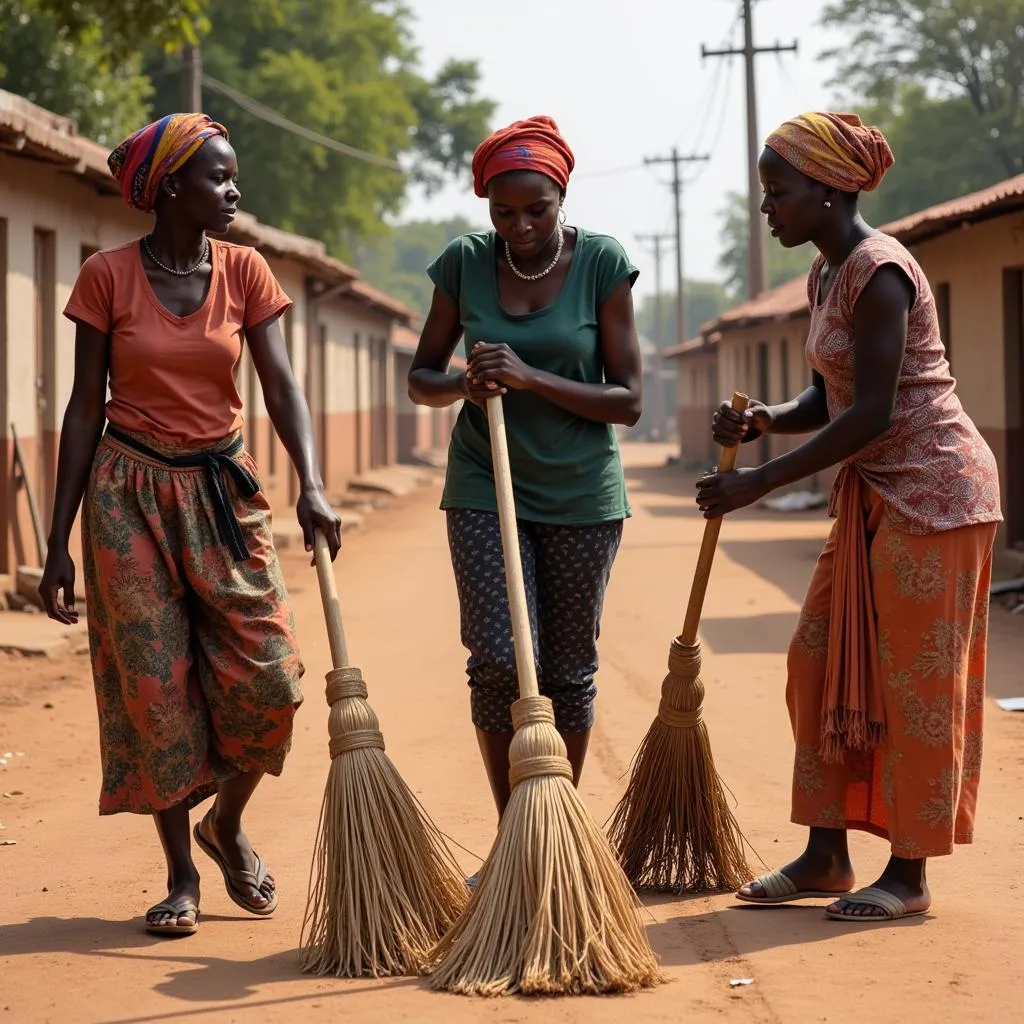Exploring the Rich History of African American Instruments
African American Instruments tell a powerful story of resilience, creativity, and cultural fusion. From the banjo’s African roots to the soulful sounds of the saxophone, these instruments have shaped American music and continue to inspire artists today. Let’s delve into this vibrant musical heritage, exploring the origins, evolution, and lasting impact of these instruments.
The Banjo: A Journey Across Continents
The banjo’s journey exemplifies the complex relationship between African and American music. Brought to the Americas by enslaved Africans, the banjo evolved from West African instruments like the ngoni and akonting. Initially constructed from gourds and animal skin, the banjo gradually adopted European influences, eventually incorporating a fretted neck and metal strings. This evolution demonstrates the ingenuity and adaptability of African American musicians who transformed the instrument into a powerful symbol of their cultural identity.
What makes the banjo so unique? Its distinctive twangy sound, produced by the vibrating skin head, sets it apart from other stringed instruments. The banjo became central to various musical genres, including folk, bluegrass, and even early jazz, showcasing its versatility and enduring appeal.
Beyond the Banjo: A Symphony of Sounds
While the banjo is perhaps the most iconic African American instrument, many other instruments have played crucial roles in shaping American musical traditions. The diddley bow, a single-stringed instrument played with a slide, provided a foundation for blues music. Its raw, emotive sound resonated with the experiences of African Americans in the South. Similarly, the washboard, a humble household item transformed into a percussive instrument, added rhythmic drive to jug bands and early jazz ensembles. These instruments, born from necessity and ingenuity, became powerful expressions of African American creativity. Have you ever considered the resourcefulness that led to such innovation?
The Spiritual Power of Music in the African American Community
african american musical instruments have always been deeply intertwined with the spiritual and social life of African Americans. From spirituals sung during slavery to gospel music’s uplifting harmonies, music provided solace, strength, and a sense of community. These musical traditions were often accompanied by handclaps, foot stomping, and body percussion, creating a rich tapestry of rhythmic expression. african church service often features vibrant musical performances, showcasing the enduring power of music in the African American community.
Preserving and Celebrating a Musical Legacy
Today, musicians and scholars continue to explore the rich history of African American instruments. Efforts to preserve traditional techniques and educate new generations ensure that this vibrant musical legacy continues to thrive. “Understanding the history of these instruments is crucial to understanding the history of African American music and, indeed, American music as a whole,” notes Dr. Anika Johnson, ethnomusicologist and expert on African American musical traditions.
The Influence of African Rhythms on Contemporary Music
The rhythmic complexity and syncopation found in African music have had a profound influence on genres like jazz, blues, and rock and roll. The call-and-response patterns, polyrhythms, and improvisational nature of African music are all evident in these genres, demonstrating the lasting impact of African musical traditions.
“The rhythmic foundation of so much of American music can be traced back to Africa,” says renowned jazz musician, Marcus Williams. “It’s a living testament to the creativity and resilience of African American musicians.” african dance form name also showcases the rhythmic complexity inherent in African artistic expression.
Conclusion: The Enduring Power of African American Instruments
African American instruments represent a powerful legacy of cultural resilience, creativity, and innovation. From the banjo’s transatlantic journey to the soulful sounds of the diddley bow, these instruments have shaped American music and continue to inspire artists today. By understanding and celebrating this rich musical heritage, we gain a deeper appreciation for the profound impact of African American culture on the world. african national anthem itself reflects the rich musical heritage of the continent.
FAQ
- What are some common African American instruments? Banjo, diddley bow, washboard, fife, and bones.
- How did the banjo come to America? It was brought over by enslaved Africans.
- What is the significance of African American music? It represents cultural resilience, creativity, and has shaped various American music genres.
- How have African rhythms influenced American music? Through call-and-response, polyrhythms, and improvisation, influencing genres like jazz and blues.
- Where can I learn more about African American musical instruments? Museums, historical societies, and online resources offer valuable information.
- What is the diddley bow? A single-stringed instrument played with a slide, foundational to blues music.
- What is the role of music in the African American community? It plays a significant role in spiritual and social life, providing solace and a sense of community.
Related Articles
For any support, feel free to contact us at Phone Number: +255768904061, Email: [email protected] or visit our address: Mbarali DC Mawindi, Kangaga, Tanzania. We have a 24/7 customer support team.
